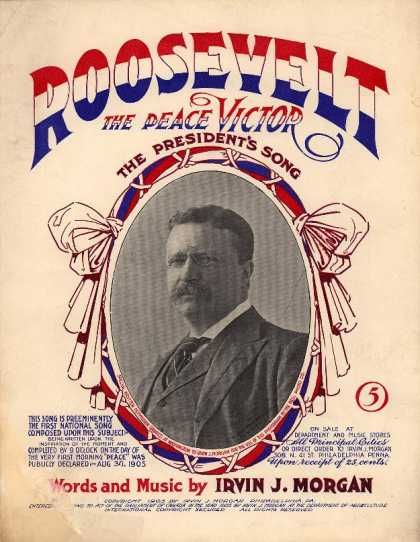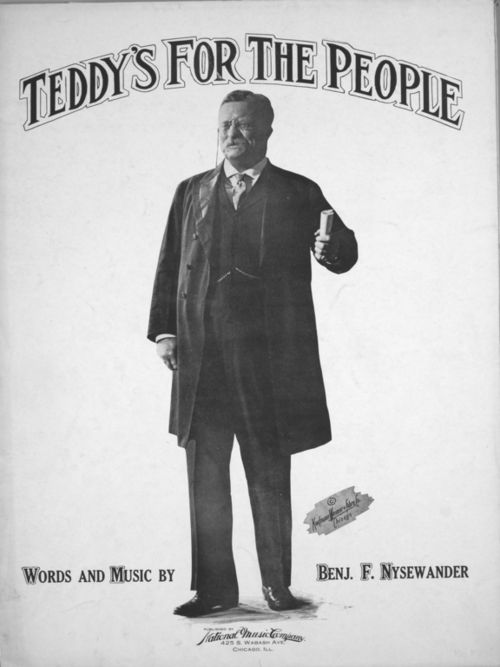
This is part of a series examining the issues in the presidential election. To see other articles in the series, click on the “2020 Elections” link on the Home page
Score
Biden -2.5 Trump +1.5
While Theodore Roosevelt often engaged in bellicose rhetoric, his foreign policy while president relied more on negotiation and adroit diplomacy to advance American interests. For example, Roosevelt relied on his diplomatic connections more than military power in avoiding an intervention by Germany in Venezuela to collect overdue debt. TR knew U.S. foreign policy needed to change to adapt to new challenges. In his time, it had to adapt by becoming more active in the world.
As I mentioned in my posts on the History and Future of Nationalism, the world has changed again. The pursuit of liberal hegemony since the end of the Cold War has been proven to be unsustainable. Meanwhile, the rise of China, Russia, India and other regional powers ushered in a dynamic multi-polar system. Trump‘s election in 2016 was a repudiation of the liberal model. Much of the change since then has been simply talk, but talk in foreign policy can also be substantive. Nevertheless, foreign policy remains one of the sharpest contrasts between the two candidates.
Realist Foreign Policy
As I have argued previously, the new National Security Strategy promulgated by Trump in 2018 is one of the most important and least understood changes in modern American foreign policy. It rejects the globalist liberal crusade to spread Western values throughout the world and expressly adopts the realist strategy, which holds that international relations is a contest among nations, especially great powers, and that America’s only foreign policy goal should be to preserve its own national security and way of life. The text has its flaws, but it remains a watershed moment in recent history. Trump deserves a +1 for this achievement.
In contrast, Biden supported the liberal globalist model in the Senate and as part of the Obama Administration. There are encouraging signs that some of his current advisors recognize the failures of this strategy as discussed in this article from the DefenseOne website. However, both Biden and Sen. Kamala Harris still focus on human rights rather than the real economic and geopolitical dangers we face. Thus, a Biden-Harris Administration would most likely return to the liberal model and so deserves a -1 rating.
NATO Expansion
The American commitment to NATO is based on the post-World War II socioeconomic weakness of Europe in the face of looming Soviet Communist expansionism. It is past time to reduce our commitment since Europe now has the capability to defend itself against Russian aggression. President Trump has talked about this, but his substantive policy has been quite the opposite. Much handwringing occurred when the administration announced the withdrawal of 9,000 troops from Germany. However, instead of coming home, they are destined for redeployment in Poland. Moreover, we agreed to admit North Macedonia, a tiny remnant of the old Yugoslavia, to NATO, and thus to defend it even though it has no relationship to any real threat to the US. Trump thus has failed to accomplish anything of substance in this area and deserves a zero.
However, Biden’s stated policy is worse. As the DefenseOne article mentions, he supports releasing Europe from the goal to increase their defense expenditures to 2% of GDP in exchange for “cooperation” on China and Middle Eastern issues. This ignores the fact that Europeans have very different views on those issues. This would allow them to piggyback on our defense support while giving up little in return. It thus earns Biden another -1.
Withdrawal from the Middle East
Perhaps nowhere has liberal hegemony failed so disastrously as in the Middle East. Rather than attempting to solve its centuries-old intractable problems, we should be supporting the development of an internal balance of power and become simply an offshore balancer (see this previous post). Unfortunately, neither candidate fully embraces this approach. Trump abandoned the JCPOA with Iran that controlled its nuclear development and instead threatened military action. He has reduced, but not eliminated, the number of combat troops in Syria and Afghanistan. On the positive side, the administration engineered the recognition of Israel by the UAE and encouraged its tacit alliance with Saudi Arabia. This lays the groundwork for a balance of power in the region between an Arab-Israeli coalition vs. Iran. However, the lack of strategic coordination between all these policies earns Trump only a zero on this subject.
Meanwhile, Biden supports trying to renew the JCPOA, but calls Saudi Arabia a “pariah state”. While supporting military withdrawal from Afghanistan and the Middle East in principle, he then conditions it on effective control of Al Qaeda and the Islamic State. Immigration and economic sanctions would be as effective in preventing them from attacking the US. Biden’s approach does nothing to achieve a realist solution in the region and thus earns him a zero as well.
China
China presents a multifaceted geopolitical, trade and domestic challenge to America. President Xi Jin-Peng’s increasingly totalitarian rule and bid for world power came as a shock to globalist elites. It should not have surprised anyone with any knowledge of Chinese history and culture. President Trump rightly alerted the world to the danger and has successfully controlled some of their influence, notably through his campaign against Huawei. However, he has failed to build the global consensus necessary to effectively contain the threat. He rates a +.5 for his efforts.
In contrast, Biden has minimized the threat and was part of an administration that naïvely coddled China and allowed the US to become dangerously dependent on it. The DefenseOne article suggests that his advisors now realize these errors and accept the need to respond. However, given the former Vice-President’s past attitudes, he must be assigned a -.5 on this issue.
Conclusion
There is no question that there are fundamental differences between the philosophies of the two presidential candidates on foreign policy. Biden has been part of the globalist establishment for years while Trump has challenged it, though often by word rather than deed. A future strategy must be based on the realism and restraint – speaking softly, not primarily by force – to be both sustainable and successful in the 21st century world.


